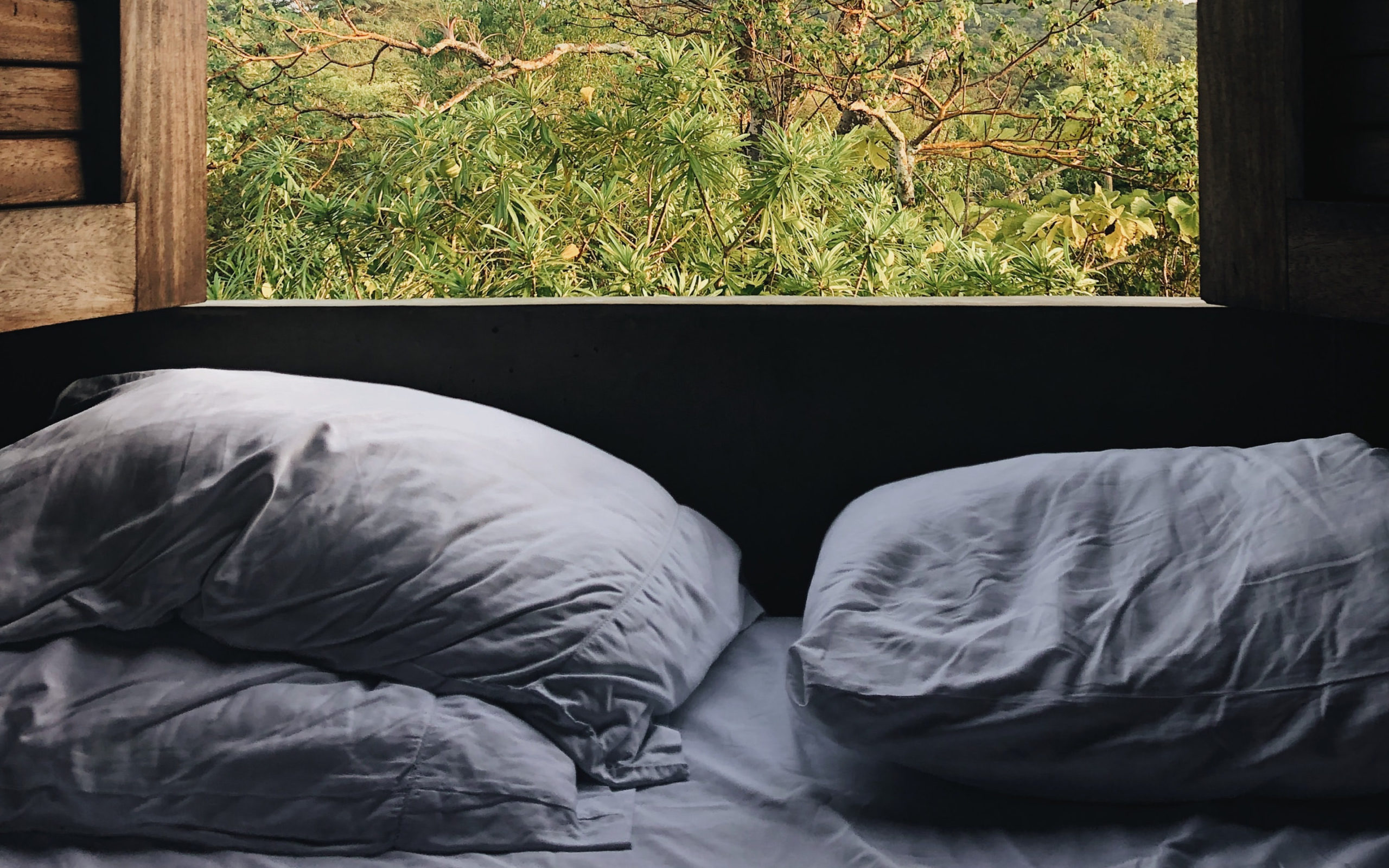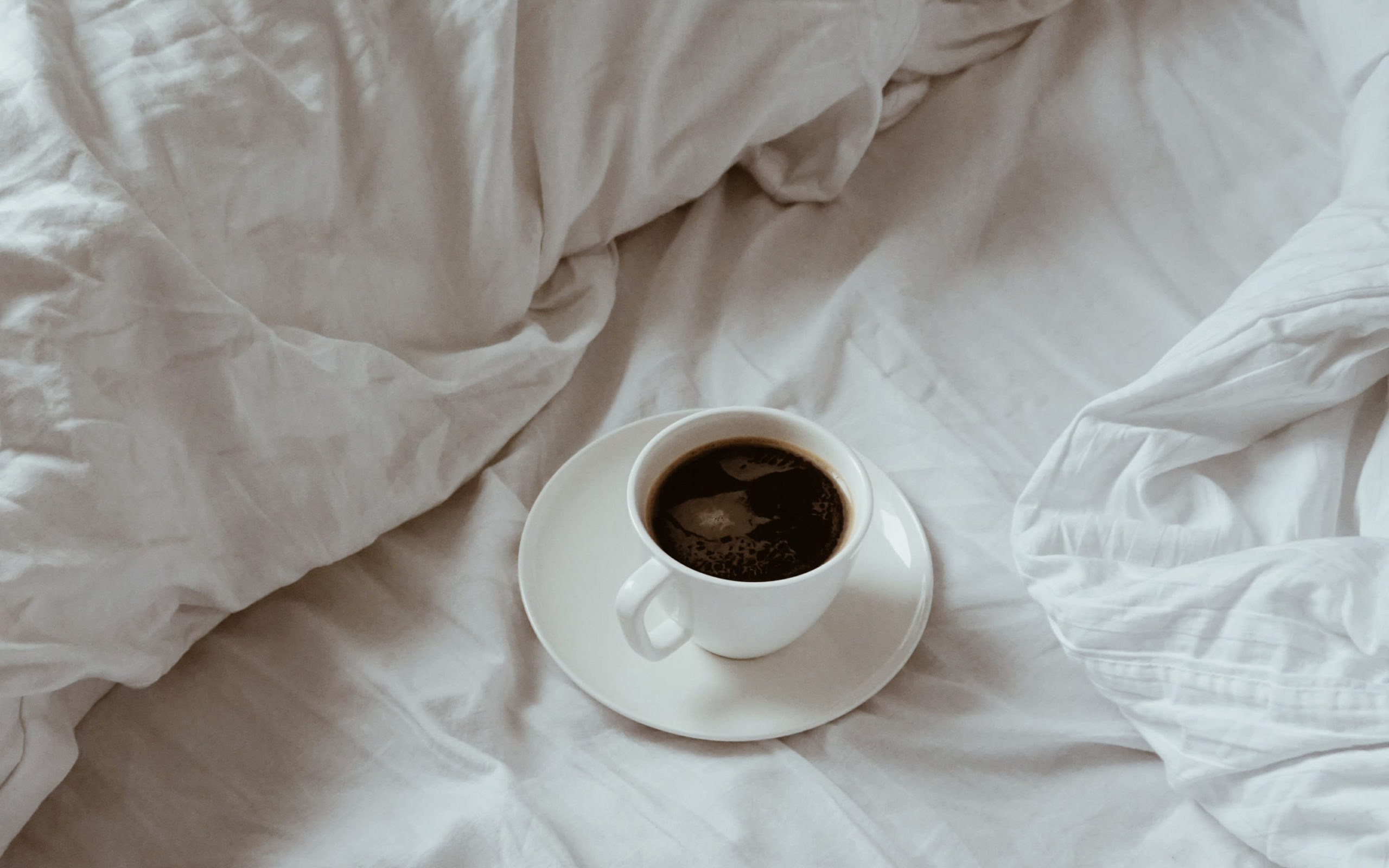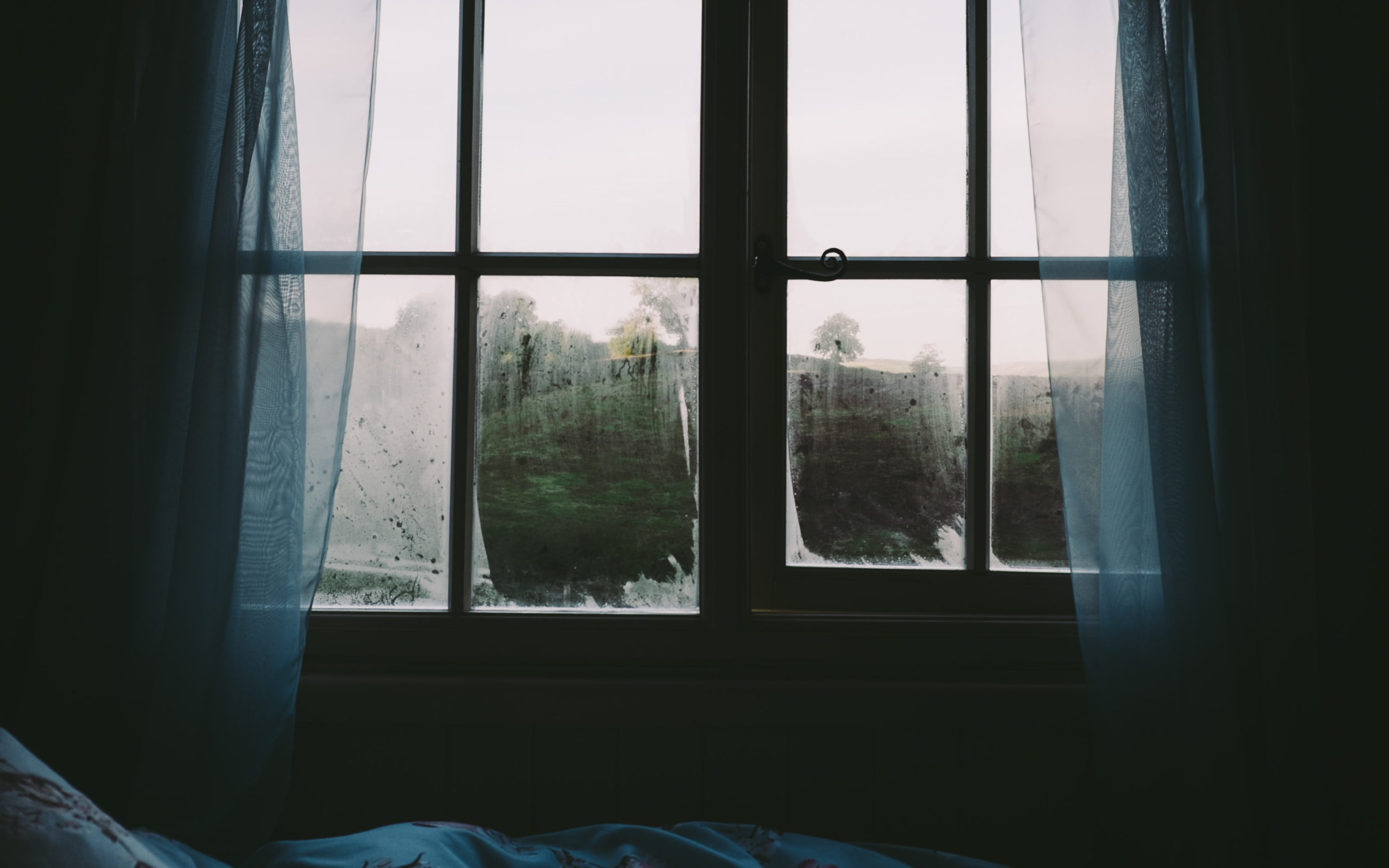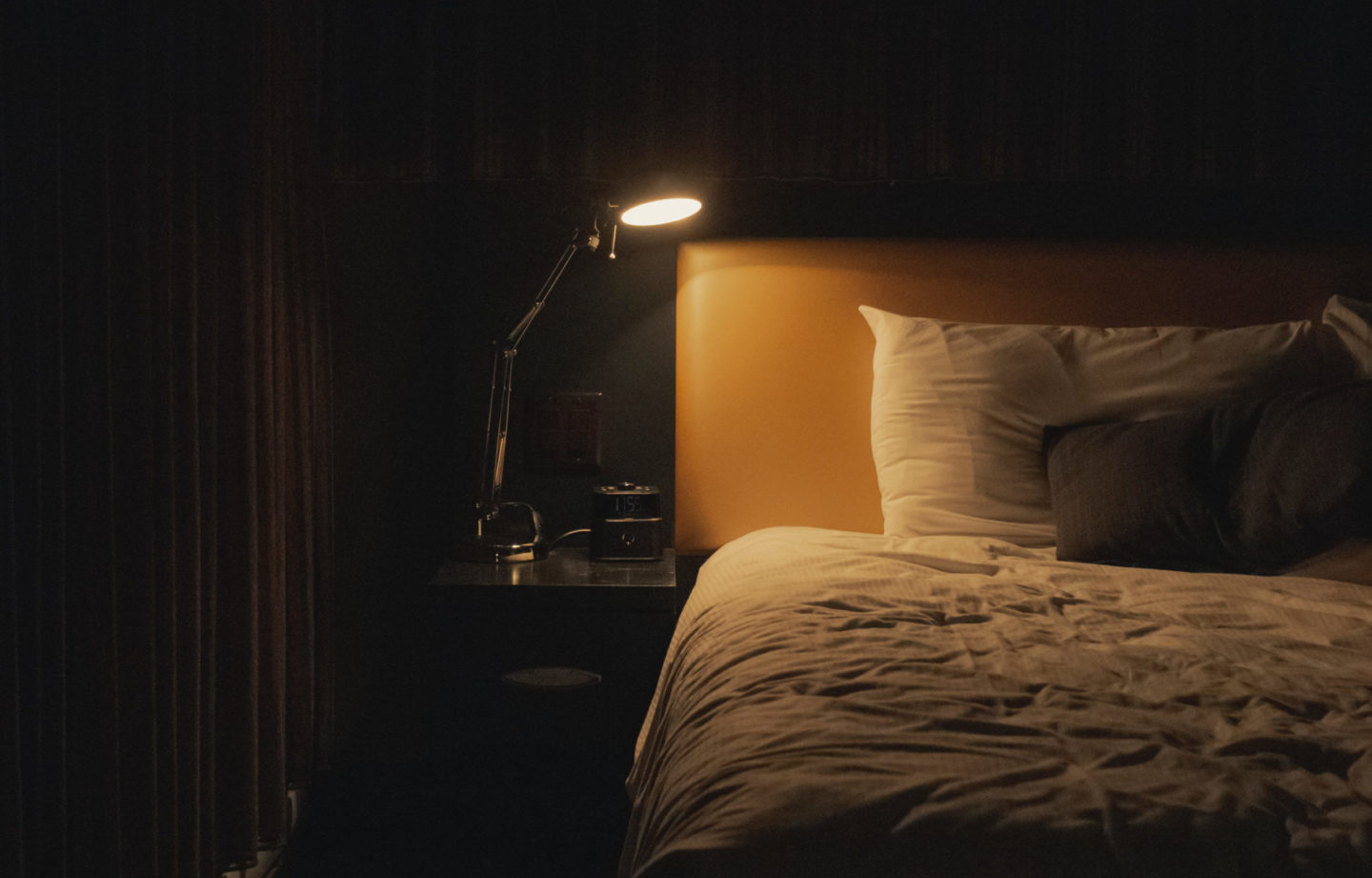Not sleeping eight hours a day weakens our immune systems, makes us prone to disease, and generally diminishes our physical and mental abilities.
Our health. Bills. Pandemics. Climate change. What isn’t keeping us up at night?
As our to-do lists expand into home lesson plans and stimulus payments, it can feel impossible to turn off your brain enough to relax and actually get some sleep.
The good news?
You can do something about that naturally, easily, effectively. Here’s where to start.
#1 — Stay Away From Hot Synthetic Fabrics
Studies show that being hot and sweaty keeps you awake at night. That’s because our bodies naturally want to cool off at night. Polyester and memory foam are notorious for being stuff and making people sleep hot.
Instead, opt for natural, breathable fibers like organic cotton, which regulate temperature and help keep you cool at night. Wool is known for being an super-effective insulator, but it’s also naturally thermoregulating — keeping you warm when it’s cool and cool when it’s hot. If you’re sleeping on a memory foam mattress, which is typically made from polyurethane, a byproduct of oil, look for certified organic alternatives.

#2 — Stop Scrolling On Your Phone Before Bed
We all do it, so I’m in no way judging, but complaining about insomnia and scrolling through your Insta every night before bed is like me wondering why I can’t lose 20 pounds while I eat a spoonful of Nutella from the jar.
Not only has blue light been directly linked to blocking melatonin production in the brain (that happy hormone responsible for our sleep), but research suggests that social media in particular triggers a cortisol response in our brains, hyping us up even further.
My advice — don’t look at a screen for the last four hours of your day without blue-light blocking glasses, and keep off of social media after dinner.
You can do this.
Nutella on the other hand — well, nobody’s perfect.
READ MORE ABOUT THE EFFECTS OF BLUE LIGHT
#3 — Dump Your Brain Out Into a Journal
Lingering thoughts and anxieties are a very real reason to miss out on sleep, and sometimes the best thing to do is just a continuous brain stream on paper. Pick up a pen and your journal, and literally write everything down that’s on your mind — run-on sentences be damned.
Go and go until there’s nothing left to write. Talk to yourself. Question the rationality of your anxiety. You may find it easier to fall asleep when nothing has gone unaddressed in your conscious mind.
What you should not do is communicate with someone else to dump your fears and worries before sleep. Studies show that communication is actually hugely taxing on our brains and can have the opposite effect to relaxing us enough for sleep.
#4 — Get Some Exercise
Being quarantined has made it increasingly difficult to stay active by accident. We’re not running as many errands, we’re not hiking, or camping, or going to the gym. When all that’s available are home workouts, suddenly being active looks a lot more like work.
Here’s the thing: do it anyway.
It’s no big shocker that research suggests that when you’re active during the day, you sleep more soundly at night. Do some landscaping if you have a yard. Follow Blogilates on YouTube to feel the burn. Dance in your living room.
Whatever you do, get up and sweat a little.

#5 — Cut Back On the Caffeine
Look, I’m a coffee snob. I get it, caffeine, particularly for parents, is life.
But it’s also the kiss of death for sleep if you’re not careful with it. Caffeine can linger in our bodies for four to six hours.
Understand your own caffeine sensitivity and set a hard-stop in your day for all sources of caffeine, including tea, coffee, dark chocolate, and sodas.
#6 — Get More Natural Light
This one’s a biggie — natural light plays a huge role in our circadian rhythm. Without it, our brains can’t distinguish which part of the day it’s supposed to start producing melatonin, and it has a heck of a hard time regulating sleep and energy levels as a result.
When you don’t get enough natural sunlight but you’re on your phone all day, you’re essentially artificially engineering your sleep hormones.
Open your curtains. Grab your laptop and work outside if you can. Get as much natural light as humanly possible (even if it’s not sunny) so your brain isn’t just relying on your own sleep schedule to help you feel tired.
If your sleep schedule is all wrong, natural sunlight could be the easiest way to start fixing it.
READ MORE ABOUT THE BENEFITS OF SUN EXPOSURE

#7 — Open a Window At Night
It’s said so often, it feels redundant, but I’m saying it anyway: cool bedrooms make for better sleep.
In the spring and fall, I turn off my heat at night before bed and crack the bedroom windows. In the morning when I wake up, the house is usually around 64 degrees Fahrenheit. I turn the heat back on in the morning to get it up to 68 (I like my house warm).
And I sleep like a baby.
Err on the chilly side, and better yet — sleep naked.
What do you do when you can’t fall asleep at night? Share your tricks with us on Facebook or Instagram and tag us in the post! @AvocadoMattress and #AvocadoGreenMagazine

Shop Pillows
The Essential Organic Pillow Collection
Gentle, breathable, non-toxic support.






